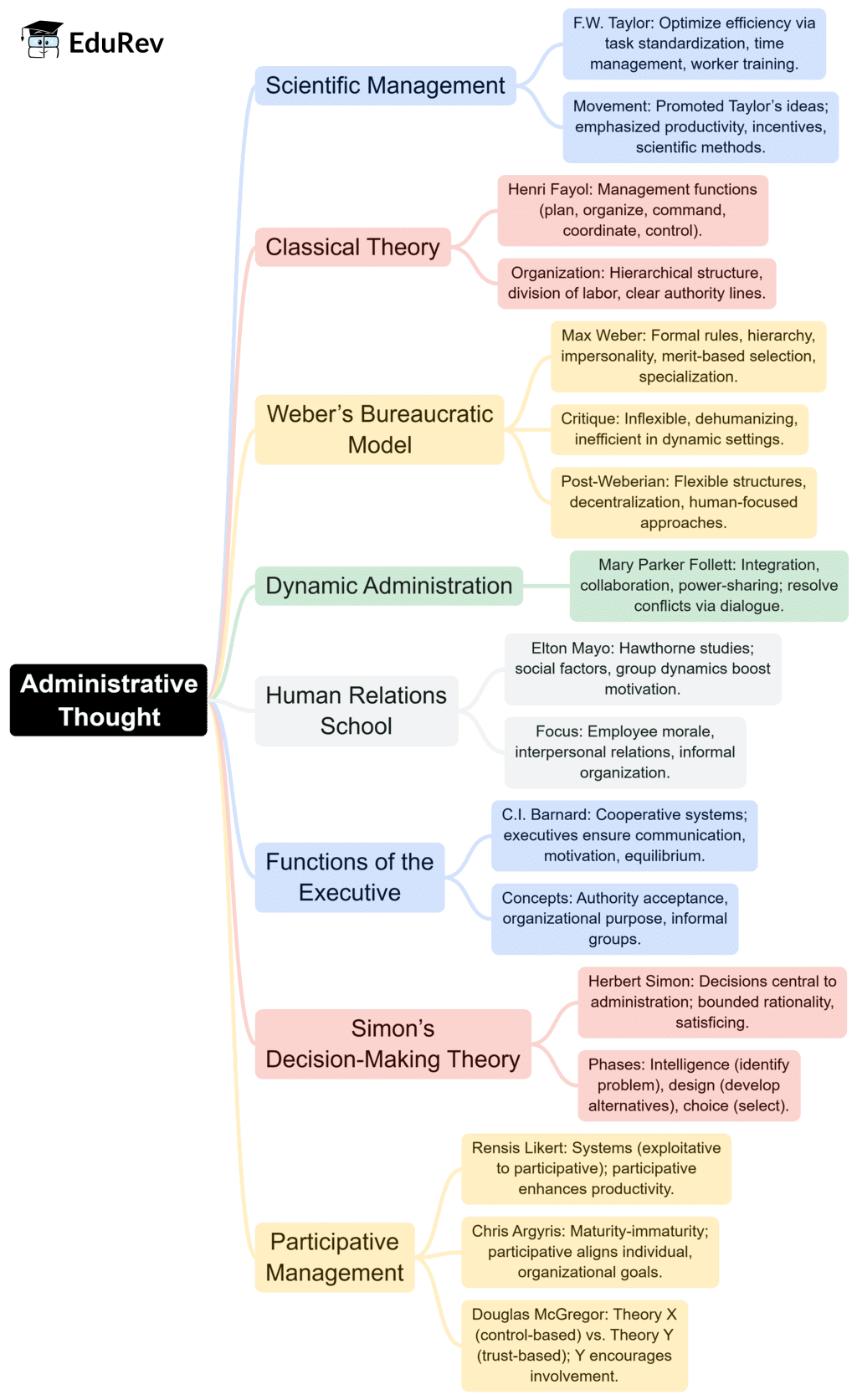UPSC Exam > UPSC Notes > Public Administration Optional for UPSC (Notes) > Mind Map: Administrative Thought
Mind Map: Administrative Thought | Public Administration Optional for UPSC (Notes) PDF Download

The document Mind Map: Administrative Thought | Public Administration Optional for UPSC (Notes) is a part of the UPSC Course Public Administration Optional for UPSC (Notes).
All you need of UPSC at this link: UPSC
|
58 videos|242 docs
|
FAQs on Mind Map: Administrative Thought - Public Administration Optional for UPSC (Notes)
| 1. What is the significance of Administrative Thought in the context of UPSC preparation? |  |
Ans. Administrative Thought refers to the theories and ideas that shape the practice of administration. In the context of UPSC preparation, understanding these concepts is critical as they help candidates grasp the complexities of governance, public administration, and policy-making. This knowledge is essential for the General Studies papers and can also enhance answers in the interview stage.
| 2. How can candidates effectively study Administrative Thought for the UPSC exam? |  |
Ans. Candidates can effectively study Administrative Thought by focusing on key thinkers and their contributions, such as Max Weber, Henri Fayol, and Mary Parker Follett. Reading standard textbooks, referring to previous years’ question papers, and engaging in group discussions can also deepen understanding. Making concise notes and connecting theories to current administrative practices will further aid retention.
| 3. Which topics within Administrative Thought are most important for the UPSC exam? |  |
Ans. Important topics within Administrative Thought for the UPSC exam include classical theories of management, behavioral theories, modern approaches to public administration, and the role of bureaucracy. Additionally, concepts like decision-making, leadership styles, and organizational structure are also crucial, as they frequently appear in exam questions.
| 4. Are there any specific books recommended for studying Administrative Thought for UPSC? |  |
Ans. Yes, some recommended books for studying Administrative Thought include "Public Administration: A Comparative Perspective" by Mohit Bhattacharya, "Administrative Theories and Management Thought" by S.P. Singh, and "Public Administration" by M. P. Sharma and S. K. Gupta. These resources cover essential theories and provide a solid foundation for UPSC preparation.
| 5. How does Administrative Thought relate to current administrative challenges in India? |  |
Ans. Administrative Thought provides a framework to analyze and address current challenges in Indian administration, such as bureaucratic inefficiency, corruption, and policy implementation issues. Understanding these theories allows candidates to propose informed solutions during the exam and interview, demonstrating their ability to relate theoretical knowledge to practical governance issues.
Related Searches
















